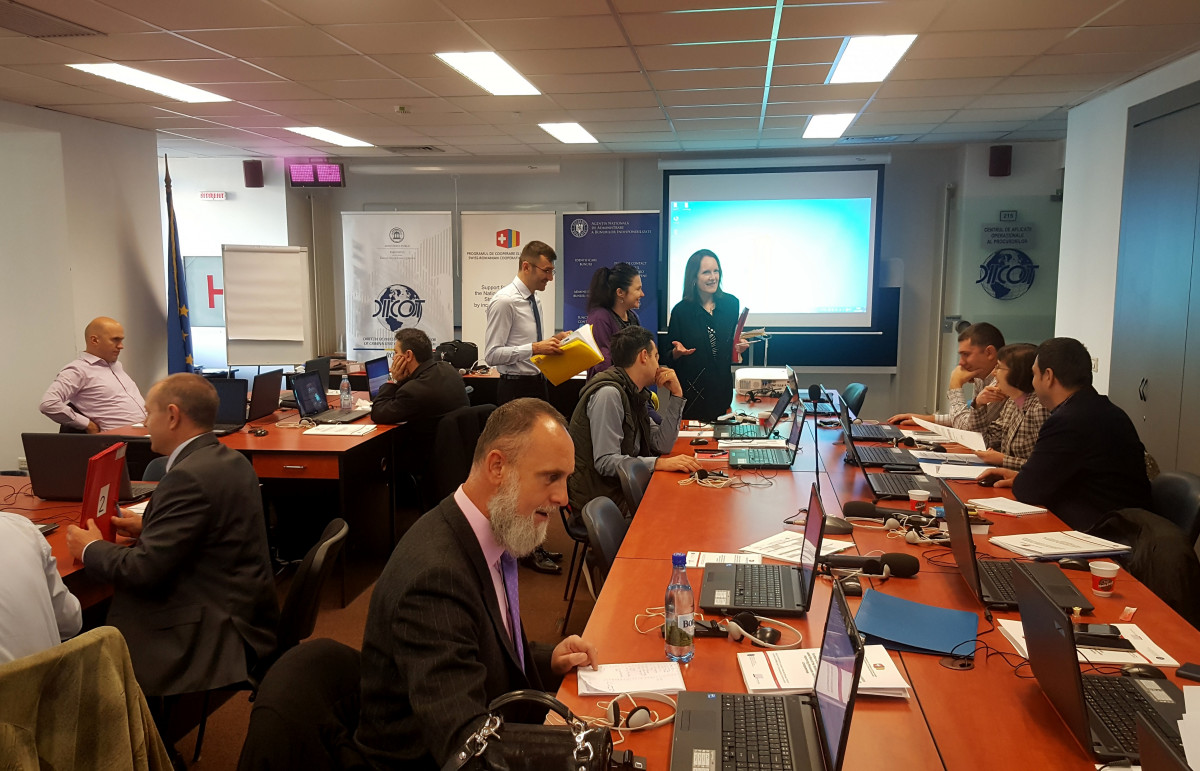Train-the-Trainer project in Romania certifies six local trainers

With a view to enhancing the investigation and asset recovery capacities of the Romanian law enforcement and justice authorities mandated to investigate and prosecute anti-corruption and economic crimes and recover stolen assets, the Basel Institute on Governance, through its International Centre for Asset Recovery (ICAR), has been providing a series of activities, including specialised training in financial investigation, under a project entitled “Further enhancing the investigation capacities of the Romanian judiciary by improving the asset recovery competences”.
The Institute’s training service targeted relevant national actors such as the National Agency for the Management of Seized Assets (ANABI), National Anti-Corruption Directorate, Directorate for Countering Organised Crime and Terrorism, Fraud Investigation Directorate (General Inspectorate for Criminal Investigations of the Romanian Police) and Directorate of Combating Terrorism Financing and Money Laundering (General Directorate for Countering Organised Crime of the Romanian Police), and prosecutors from the Prosecutor’s Office attached to the High Court of Cassation and Justice. This training service was conducted in a series of five separate workshops during 2017, and included the development and delivery of a Train-the-Trainers (TTT) component for a number of specially selected participants of the workshops
During the 5th and final training workshop conducted in Bucharest, six local selected trainers further honed their skills as trainers in the ICAR methodology as part of this TTT project carried out in conjunction with ANABI. During October 2017 and under the guidance and mentorship of an ICAR expert, they completed the final training workshop in the project, delivered all training presentations and facilitated the practical exercise and received certification as trainers.
Through the use of a simulated practical exercise, which closely resembles the real world and forms the centrepiece of the ICAR training programme, the ICAR expert supervised the selected trainers in the application of the Case Study Method to enhance investigative and prosecutorial capacity amongst their peers and encourage learning. 25 participants were required to “investigate” a complex case customised to the Romanian legal system, legislation and practice by gathering evidence for use at trial and matching the available evidence to the elements of identified Romanian corruption and money laundering offences/criminal violations.
The certified trainers are now in a position to conduct such training workshops to the benefit of their colleagues.
The workshop also included a presentation by Mr Attila Biro, an investigative journalist on the RISE project with whom the Institute is collaborating within the context of a three-year initiative on "Mapping and Visualising Cross-Border Crime” funded by the Swiss-Romanian Cooperation Programme. It covered the use of open source databases, which could be of assistance and value to investigators and prosecutors. It proved to be most thought-provoking and informative, and encouraged participants to take advantage of such databases to gather information to direct their investigations and inform, for example, Mutual legal Assistance requests.


